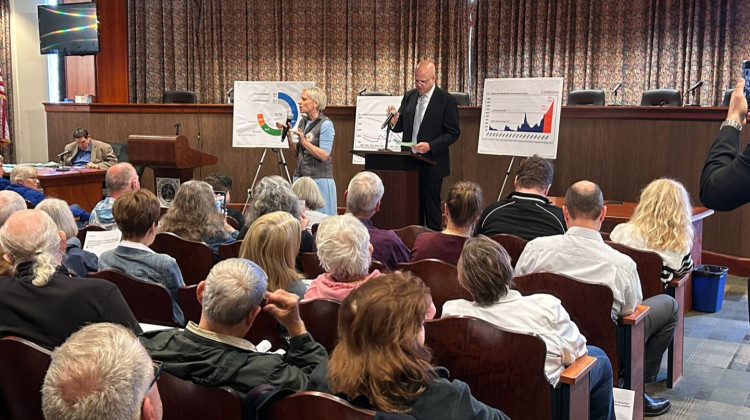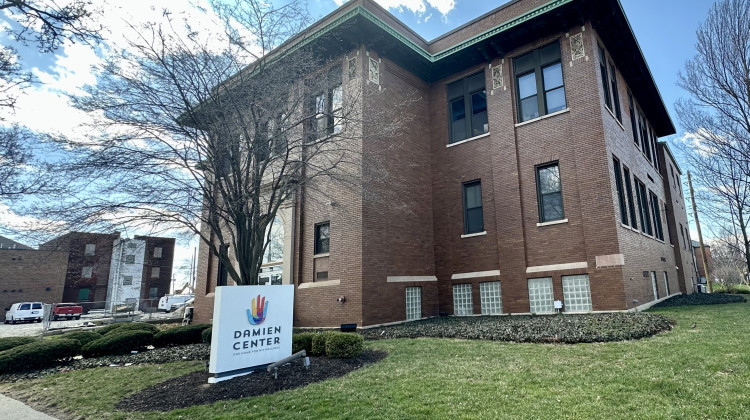
Former U.S. Rep. Lee Hamilton and former Indiana Supreme Court Chief Justice Randall Shepard discuss civic engagement.
Lauren Chapman/IPB NewsThe Indiana Civic Health Index uses data from the census and the U.S. Elections Project to measure how much Hoosiers engage with their government and their community.
For example, one of the questions from the U.S. Elections Project – do you eat dinner with a family member frequently? Nearly 93 percent of Hoosiers said yes in 2016, ranking third in the country.
Hoosiers are more likely to attend public meetings, volunteer in community organizations and interact with their neighbors than in years past.
But those with, at most, a high school education are less likely to vote in midterm and presidential elections than those with at least a bachelor’s degree. That worries former U.S. Rep. Lee Hamilton.
“If you take the position that only smart people, only educated people are the voters, it’s a very restricted view of democracy,” Hamilton says.
The differences are significant. In 2016, 23 percent of Hoosiers with at most a high school degree voted, compared to 80 percent of those with a bachelor’s degree or better.
Indiana compared to the nation:
- 3rd, eating dinner with family
- 18th, discussing politics with family and friends
- 19th, voting in local elections
- 29th, attending public meetings
- 34th, confidence in public schools
When discussing partisan politics, Hoosiers are more willing to talk to friends and family than in the past – a roughly 40 percent increase in six years. Former Indiana Supreme Court Chief Justice Randall Shepard says that has lead to more civil discourse in elections.
“I would suggest to you, if you look at the Indiana elections in the last cycle or two, the level of engagements between the two candidates … I think there’s a lot to be proud of in how they talked about each other,” Shepard says.
The index, as Hamilton says, is a snapshot of Indiana’s civic engagement.
“The beginning question is why do you have a civic health index? And the answer for us, is to make Indiana a better place to live,” Hamilton says.
This is the third Indiana Civic Health Index since 2011.
 DONATE
DONATE







 Support WFYI. We can't do it without you.
Support WFYI. We can't do it without you.